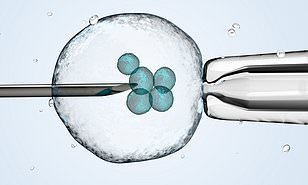Source Pink News
A gay couple in Scotland have been offered IVF treatment by the NHS for what is believed to be the first time in the UK.
The married couple plan to have a baby via IVF, using the sperm of one of the men and a surrogate mother to carry the child, reportsThe Mail on Sunday. The newspaper has chosen to keep the identity of the gay couple, who are married, anonymous.
The NHS will fund the IVF fertilisation process and the embryo being implanted into the surrogate mother.
The NHS has previously refused to give gay male couples the treatment because of a “blanket ban” on funding treatment that involves use of a surrogate, reports the Mail on Sunday.










